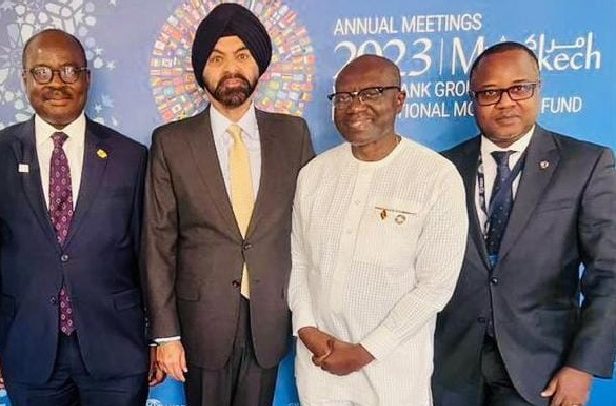In a significant move, the World Bank has approved a $300 million Development Policy Operation for Ghana.
This financial support aims to bolster the country’s economic recovery, resilience, and inclusive growth.
The approval follows Ghana’s agreement in principle with the Official Creditors’ Committee under the G20 Common Framework for its proposed debt restructuring.
The World Bank stated that this financing package, which aligns with the Joint World Bank-International Monetary Fund Debt Sustainability Framework, marks a critical milestone towards restoring debt sustainability in Ghana.
Additionally, it emphasizes the urgency of restoring fiscal and debt sustainability, enhancing growth prospects, curbing inflation, and protecting the most vulnerable sectors, as supported by this funding.
Ousmane Diagana, the World Bank Vice-President for Western and Central Africa, stressed the importance of such efforts, citing their role in attracting foreign investment, revitalizing the domestic private sector, building resilience against climate change, and improving the quality of life for the Ghanaian people.
Finance Minister, Ken Ofori-Atta expressed gratitude for the $300 million, acknowledging its vital role in easing Ghana’s fiscal constraints, sustaining their momentum of economic recovery, and protecting the poor and vulnerable.
He reiterated the government’s commitment to restoring macroeconomic stability and implementing lasting reforms for strong, sustainable long-term growth and transformation.
The approved Resilient Recovery Development Policy Operation is the first in a series of three operations, each of $300 million, and part of a broader World Bank engagement for crisis response and resilience in Ghana.
Its objectives encompass restoring fiscal sustainability, supporting financial sector stability and private sector development, improving energy sector financial discipline, and strengthening social and climate resilience.
This financing series will also prioritize specific reforms, such as strengthening domestic revenue mobilization, controlling expenditures, safeguarding financial sector stability, and removing barriers to private investment.
Furthermore, the Resilient Recovery Development Policy Operation aims to set the energy sector on a sound financial and operational footing, strengthen the country’s social protection system, and mainstream climate adaptation and mitigation across policies.
With this substantial financial support from the World Bank, Ghana can take significant strides towards economic recovery, resilience, and inclusive growth, ultimately improving the lives of its citizens.
By Vincent Kubi


